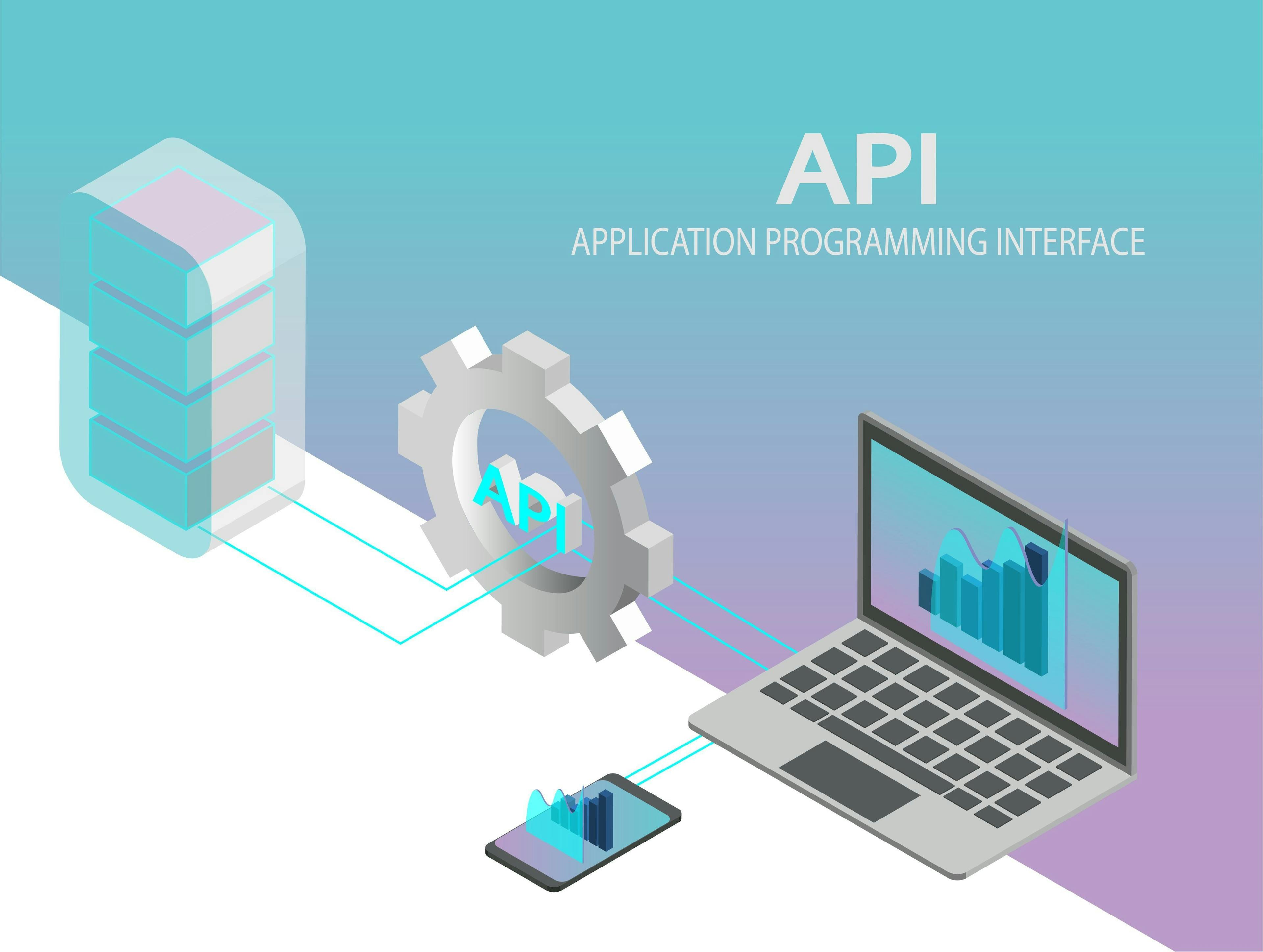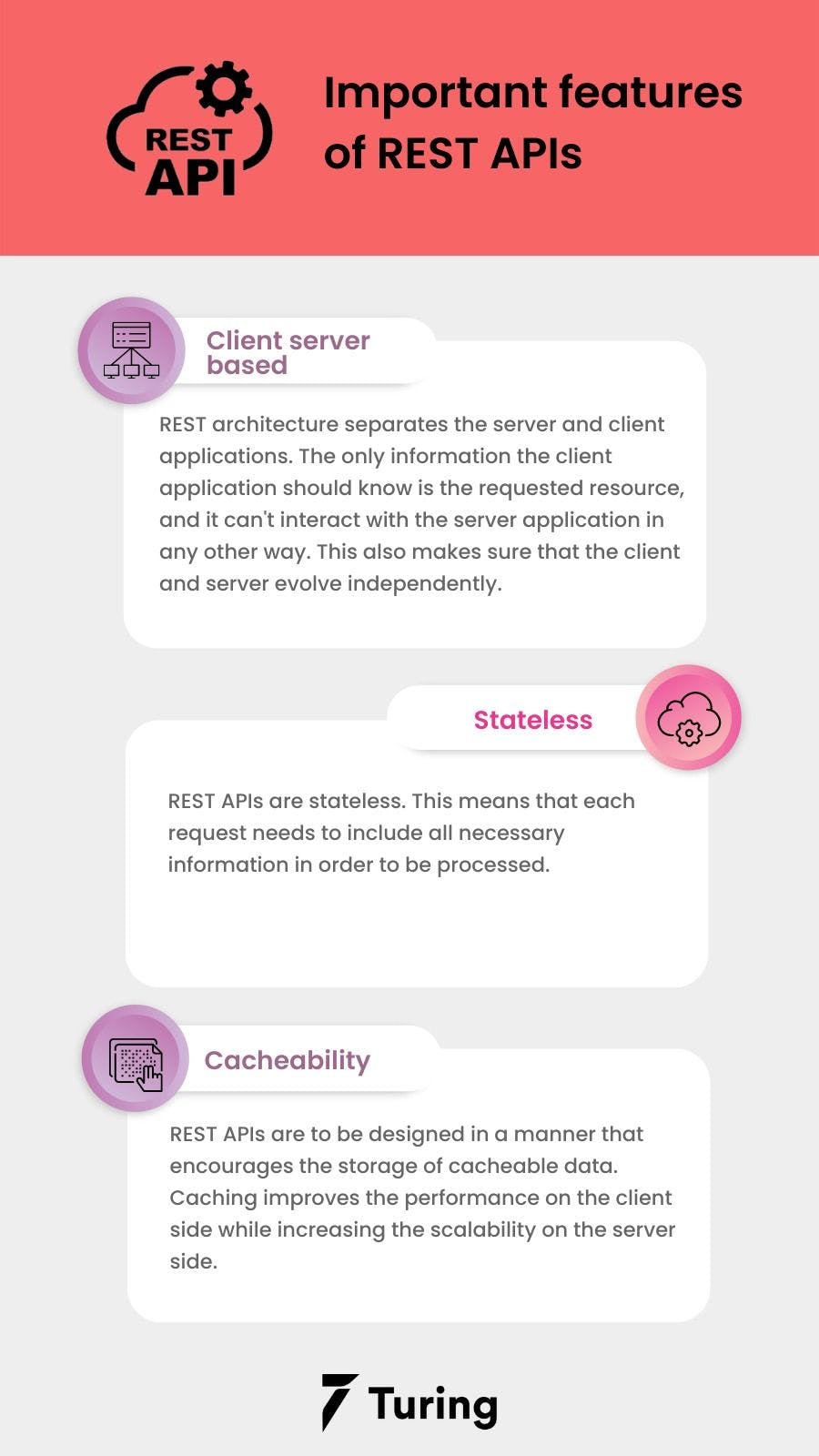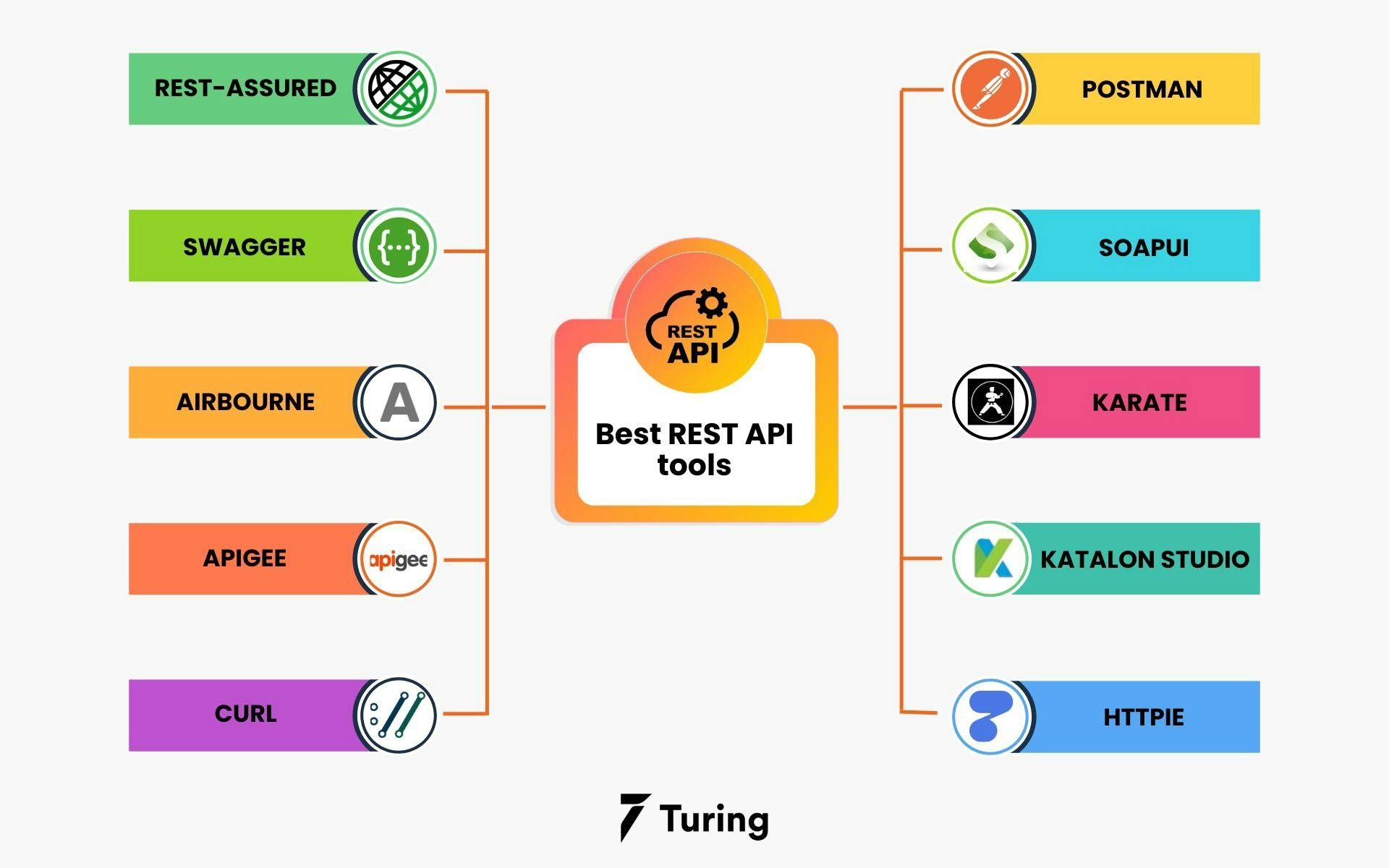Leverage Turing Intelligence capabilities to integrate AI into your operations, enhance automation, and optimize cloud migration for scalable impact.
Advance foundation model research and improve LLM reasoning, coding, and multimodal capabilities with Turing AGI Advancement.
Access a global network of elite AI professionals through Turing Jobs—vetted experts ready to accelerate your AI initiatives.
FOR DEVELOPERS
10 Best REST API Developer Tools for Increasing Productivity

It’s not enough to build an application; you need to see if it meets - or better yet, exceeds - expectations. API testing verifies if an app measures up to standard performance, functionality, and security requirements. In this article, we look at some of the best REST API tools that can help you increase productivity.
Table of Contents
What is a REST API?
An API or application programming interface is a collection of software functions or a set of rules that define how software applications can connect and communicate with each other. REST APIs (also known as RESTful APIs) conform to the design principles of the REST (representational state transfer) architectural style and allow interaction with RESTful web services. REST APIs provide a flexible way to integrate with computer applications and access web services without heavy processing capabilities.
Below are some of the important features of REST APIs:

Best REST API tools
Although RESTful web services are easy to maintain, manual API testing has certain complications which make it an unsuitable method. Hence, it is important to opt for REST API testing tools to conduct API testing.

The following are some of the more popular REST API tools to consider for testing:
Postman

Postman was first introduced as a Chrome plugin which later evolved into one of the best REST API testing tools. If you are looking for manual testing or want to test an API without an integrated dev environment, Postman is the best choice.
Some of the features of Postman are:
- Interface allows the extraction of web API data
- Ability to write Boolean tests
- Comprises built-in tools, collections, and workspaces
- Supports various formats like RAML and Swagger
- Ability to create a collection of REST calls and save them for future execution
- Not a command-line based tool which makes it easy to paste text into a command-line window.
REST-assured

REST-assured is an open-source tool used for testing REST services. This is the best tool for API testing for Java developers.
Its key features are:
- Seamless integration with the Serenity automation framework
- Provides baked-in functionalities to ensure users don’t code from scratch
- Supports syntaxes of BDD Given/When/Then
- No extensive HTTP expertise needed
- Supports different types of XML and JSON requests
- Combination of REST test and User Interface.
Swagger

Swagger is an open-source tool that is useful throughout an API lifecycle. It also creates auto-generated documentation and definitions of REST APIs.
Below are some of its major features:
- Supports API design, development, documentation, and security testing
- Provides several open-source tools for OpenAPI Specification (OAS)
- Supports API mocking and virtualizations
- Provides API governance and monitoring.
SoapUI

Simple Object Access Protocol (SoapUI) is an open-source API testing tool that allows developers to test REST, SOAP, and web services with ease.
Some of its features include:
- The ability to create tests by drag and drop functionality
- Reuse scripts for loading tests
- Supports REST, SOAP, and IoT requests
- Supports asynchronous testing.
Airborne

Airborne is a Ruby-based open-source API test automation framework. It is one of the best REST API tools. Although it doesn’t have a user interface, it provides a text file to create and write code.
Here are some of its key features:
- Can work with APIs written in Rails
- Knowledge of Ruby and RSpec fundamentals is required.
Apigee

Apigee is a cross-cloud API testing platform for measuring and testing API performance. It supports and builds APIs using other editors like Swagger. It also offers security and governance policies for all APIs.
Some of its features are:
- Allows you to design, monitor, deploy, and scale APIs
- Can easily create API proxies from the OpenAPI Specification
- Easily identify performance issues by tracking API traffic, error rates, and response times
- Supports Node.js
- Provides customizable developer portals
Karate

Karate is another open-source API testing framework based on a Cucumber library. It allows users to write meaningful tests in a domain-specific language. It also makes it easy to create scenarios for API-based BDD tests.
Some of its noteworthy features are:
- No prior programming experience is required
- Supports multi-thread parallel execution
- Allows testing and report generation like standard Java projects
- Allows reuse of payload data and user-defined functions across tests.
Katalon Studio

Katalon Studio is a free API platform for creating and sending HTTP requests to servers. The tool helps automate web APIs, UI functionality, and mobile testing.
Some key features are:
- Provides test report dashboards of all testing stages
- Free API testing platform
- Requires no prior programming experience
- Supports RESTful and SOAP requests.
Curl

cURL is an open-source command-line tool for transferring data from a server. The cURL command allows you to send HTTP requests like GET, POST, PUT, and DELETE which are used to test basic functionalities for REST APIs.
Some key features are:
- Allows you to send an application that is dependent upon HTTP
- Supports different protocols like HTTP, FTP, IMAP, SMTP, and POP3.
HTTPie

HTTPie is a command-line tool written in Python and used to test REST APIs. It is used for debugging and ensuring user-friendly interactions between HTTP servers, RESTful APIs, and web services. It uses simple syntax to get started.
Some of its key features are:
- User-friendly
- Simple and natural syntax
- Built-in JSON support.
Conclusion
These are some of the best REST API tools you can use to test applications. With that in mind, you should look for REST API tools based on your skill set and development environment in order to have a seamless experience when testing applications.
Author

Thulie V
Thulie is a technical writer, data scientist, and Python programmer, who is well-versed at writing informative, easy-to-understand, and engaging technical articles
Frequently Asked Questions

Press

Blog
